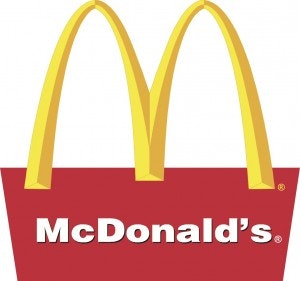Americans are firmly back into their old ways, saving virtually nothing and spending the rest. A recent piece from The Economist documents the short-coming of America’s financial planning.
In short, we’re asset rich and cash poor.
The American savings rate dipped to 2.6% in February 2013, down from 3.5% the year before. Meanwhile, American reliance on financial assets for net worth is skyrocketing. Surging real estate prices and stock valuations put American net worth back on track to pre-recession levels.

Bernanke’s asset and debt bubble
Say what you want about the merits of quantitative easing, but it’s doing exactly what Bernanke had hoped, igniting a fire underneath asset valuations as the cost of capital plummets.
As any arm chair financier knows, a lower cost of capital results in higher asset values. As credit flows freely once again, borrowers find it possible to leverage their financial worth to buy new homes, cars, durable goods, and other major purchases that they couldn’t afford without financing.
Inexpensive credit has allowed the American consumer to spend freely once again. Thanks to lower interest rates, Bernanke and his fellow central bankers are engaging in a policy to free up cash flow for American consumers. Household debt servicing as a percentage of disposable income fell to 15.48% in the fourth quarter of 2012, the lowest level since the first quarter of 1981.
While households find debt as a percentage of their income more affordable than at any time in the past two decades, the savings rate isn’t falling in line with historical figures.
Americans saved an average of 9.6% of their income in the first quarter of 1981 when debt servicing was as cheap as a percentage of income as it is right now, according to data from the Federal Reserve.
Today, American households are saving less than 3% of their income, despite the fact that Americans as a whole are finding their debt servicing costs near a historical low.
Jobless recovery is over
A jobless recovery, one where asset prices and consumer spending can increase without job growth, is over. Americans are tapped out; incapable of saving much less than the 2.6% of their income they saved in February.
For corporate earnings to continue growing, American wages will have to grow, too. So far, American wage growth has been stagnant as new job creation is growing fastest in the low-paying service and hospitality industries.
So how should one play the death of the jobless recovery? Consider raising cash, or fleeing to safer corners of the market. Here are three ideas on how to balance your portfolio in line with economic realities:
McDonald’s Corporation (NYSE:MCD)
Americans like to eat, even when times are tough. McDonald’s enjoyed robust margin expansion during the financial crisis as hungry Americans opted for inexpensive alternatives to higher priced restaurants. McDonald’s Corporation (NYSE:MCD) enjoys an incredible operating margin of more than 30% on top of a valuation that puts it in line with the broad market.
The company’s international expansion plans somewhat insulate the company from American economic weakness. It should be mentioned that McDonald’s had an average 5-year revenue growth rate of 4.58% through 2011, arguably the most challenging 5 year period for any restaurant business.
McDonald’s Corporation (NYSE:MCD) trades at 15 times forward earnings projections, and pays a dividend that rewards investors with a yield nearing 3% per year, which may save some investors from the paltry yields in fixed-income thanks to the Fed’s aggressive bond buying.
The Coca-Cola Company (NYSE:KO)
Nothing says flight to quality like a move to Coca-Cola. This well-insulated beverage company has a wide economic moat from its incredible distribution network. New competitors stand little chance against one of the best known brands in the world with distribution in every country except North Korea.
The Coca-Cola Company (NYSE:KO) is the kind of value play that can survive hard times. While consumer staples companies often lose customers to trading down, far more people are willing to pay an extra 25 cents for Coca-Cola compared to a cheaper private-label soda product. Coca-Cola also enjoys a favorable geographic income distribution, generating more than half of its revenues and profits overseas.
With a dividend yield of 2.58% and a forward earnings multiple of 16.7 times forward earnings, this defensive stock is worth a look as another asset bubble-fueled spending spree begins.
Raising cash
When stock prices only go up – and that’s all they’ve been doing in 2013 – investors should consider carefully the idea of slashing exposure.
Stock investors shouldn’t forget fixed-income investments. While the yields are low across the board, yields don’t matter nearly as much as safety. A sub-1% yield on the 5-year Treasury may look unattractive, but compared to a 5% loss in stocks in a market selloff, a yield measured in basis points is still a better return than losing money. Vanguard Intmdte Tm Govt Bd ETF (NASDAQ:VGIT), which holds US Treasury securities with a maturity of 3-10 years yields .9% to maturity.
The Shiller cyclically-adjusted price-earnings ratio of 23.44 for the SPDR S&P 500 ETF Trust (NYSEMKT:SPY) is well above the historical median of 15.88 and average of 16.47 times earnings as measured by Multipl. Stocks are quickly surging to early 2000-levels as measured by the CAPE, the last time interest rates fueled a housing and consumption binge and American savers put little away in their retirement accounts.
Investors should start playing it safe. As large cap stocks trade for multiples far higher than historical norms and consumers tap out their ability to spend, a reversion to the mean could be devastating for investors who aren’t positioned for at least a modest correction in asset prices.
Jordan Wathen has no position in any stocks mentioned. The Motley Fool recommends Coca-Cola and McDonald’s. The Motley Fool owns shares of McDonald’s.
